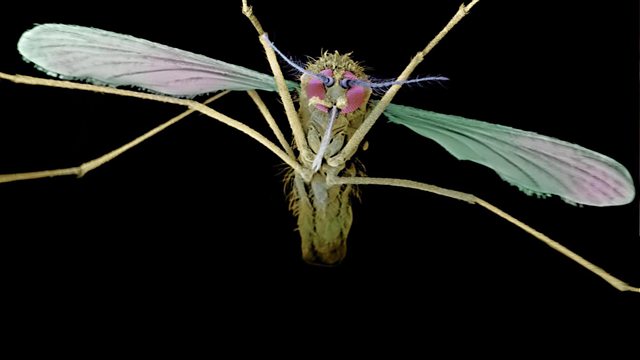10/11/2011
Scientists stop malaria from invading red blood cells for the first time; A way of diagnosing TB on your breath; Will the Russians ever get to Mars?; Testing the world's morality.
Malaria transmission
Scientists have identified a critical step in the way the malaria parasite infects our blood cells, and are now working on a way to stop it. It could offer a new target for a vaccine, which would be a very welcome development, because malaria kills 800,000 people every year according to the World Health Organisation, most of them are young children in sub-Saharan Africa. Dr Julian Rayner, who carried out the new research at the Wellcome Trust Sanger Institute in Cambridge, England, explains his work to Science in Action.
TB Breathalyser
Have you ever been breath-tested for alcohol? If not, you may have seen a breathalyser type device used on television shows. It has become a very common test, probably because it is so easy. You simply blow into a tube, and moments later the hand held device can tell you how much alcohol there is in your blood. Imagine such a simple test for tuberculosis. At the moment checking for TB can take weeks, and a number of visits to a clinic or hospital. Now a young Indian scientist, Dr Ranjan Nanda, has been given a grant to develop his idea of a breathalyser that can detect TB. The money is being given by the Bill and Melinda Gates Foundation and Grand Challenges Canada. Their CEO Dr Peter Singer, spoke to us about the project.
Space - Asteroids and Mars missions
Βι¶ΉΤΌΕΔ Science Correspondent Jonathan Amos joins us to talk about a busy week in space, from an asteroid that came very close to the Earth (at least in astronomical terms) to a Russian Mars Mission that may never get to the Red Planet.
Morality Test
Philosophers have tried for years to explain our sense of ethics, but now the Βι¶ΉΤΌΕΔ’s Lab UK is trying to understand why evolution may have a role to play in how our morality is shaped. They have developed an online morality test, an interactive questionnaire that puts users through various ethical scenarios, from a leader failing to defend their country from outside aggressors, to the selection of a candidate for a particular job because they are related to their employer. So what can this test teach us about the biological benefits of acting morally? Science in Action's Mike Tighe visits the Βι¶ΉΤΌΕΔ's West London Media Centre and meets the development team behind the project.
(Image: Mosquito in flight. Credit: Press Association)
Last on
Broadcasts
- Thu 10 Nov 2011 19:32GMTΒι¶ΉΤΌΕΔ World Service Online
- Fri 11 Nov 2011 04:32GMTΒι¶ΉΤΌΕΔ World Service Online
- Fri 11 Nov 2011 12:32GMTΒι¶ΉΤΌΕΔ World Service Online
- Sat 12 Nov 2011 06:32GMTΒι¶ΉΤΌΕΔ World Service Online
- Mon 14 Nov 2011 00:32GMTΒι¶ΉΤΌΕΔ World Service Online
Podcast
-
![]()
Science In Action
The Βι¶ΉΤΌΕΔ brings you all the week's science news.


